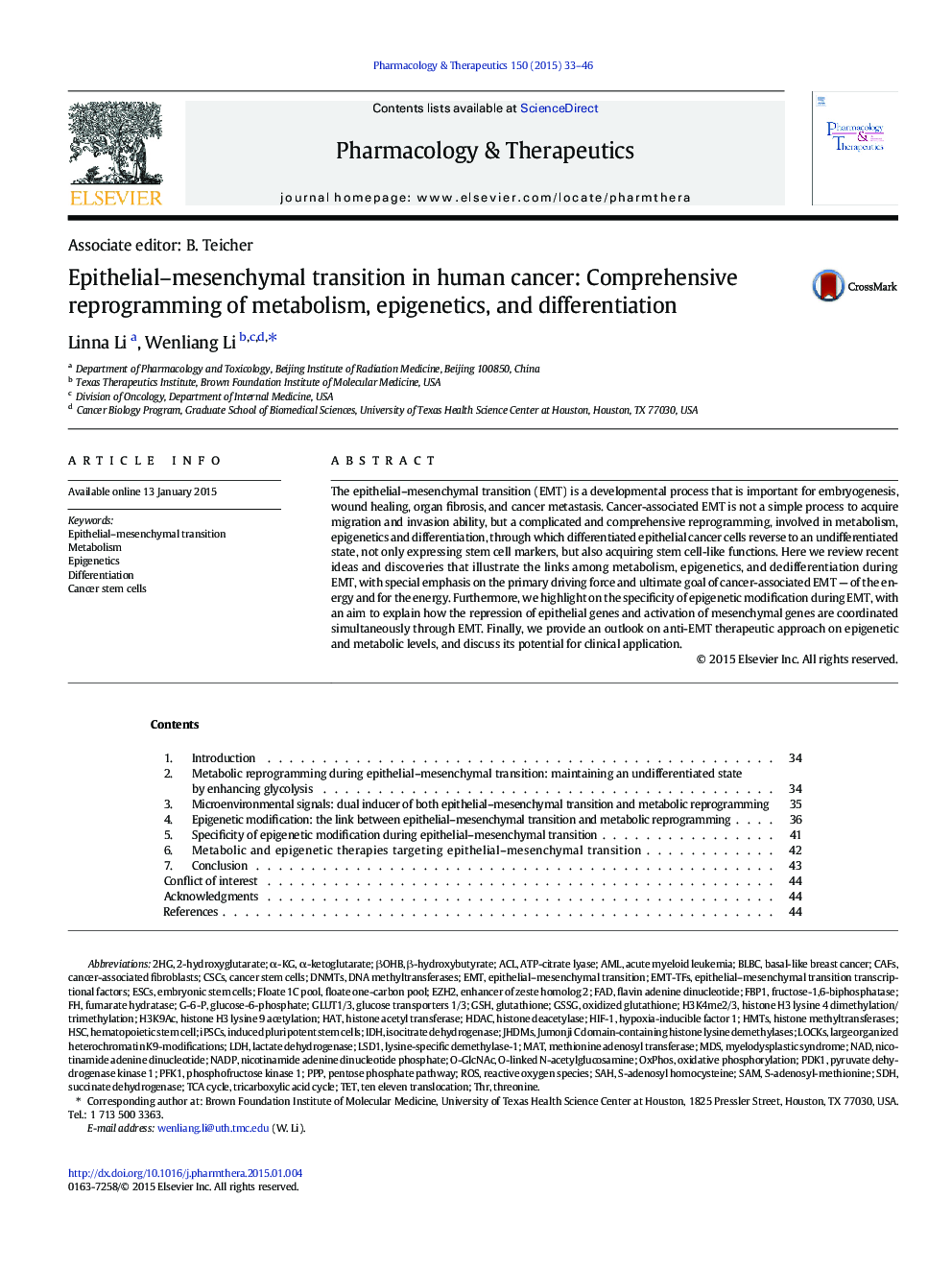| Article ID | Journal | Published Year | Pages | File Type |
|---|---|---|---|---|
| 2563090 | Pharmacology & Therapeutics | 2015 | 14 Pages |
The epithelial–mesenchymal transition (EMT) is a developmental process that is important for embryogenesis, wound healing, organ fibrosis, and cancer metastasis. Cancer-associated EMT is not a simple process to acquire migration and invasion ability, but a complicated and comprehensive reprogramming, involved in metabolism, epigenetics and differentiation, through which differentiated epithelial cancer cells reverse to an undifferentiated state, not only expressing stem cell markers, but also acquiring stem cell-like functions. Here we review recent ideas and discoveries that illustrate the links among metabolism, epigenetics, and dedifferentiation during EMT, with special emphasis on the primary driving force and ultimate goal of cancer-associated EMT — of the energy and for the energy. Furthermore, we highlight on the specificity of epigenetic modification during EMT, with an aim to explain how the repression of epithelial genes and activation of mesenchymal genes are coordinated simultaneously through EMT. Finally, we provide an outlook on anti-EMT therapeutic approach on epigenetic and metabolic levels, and discuss its potential for clinical application.
